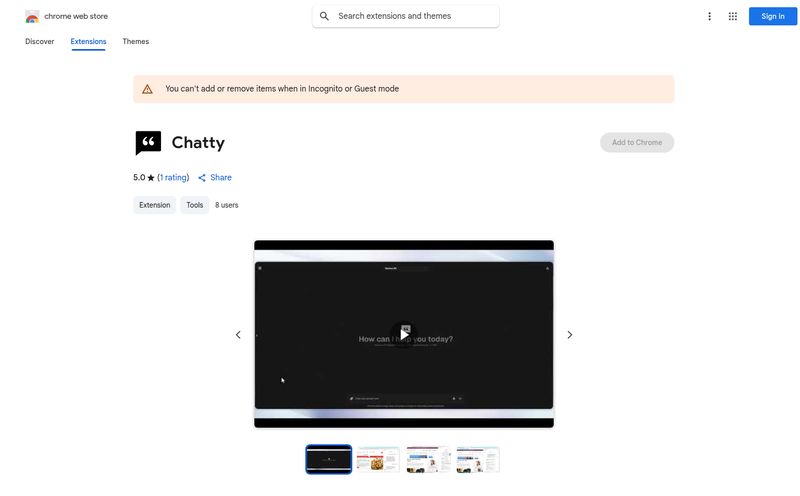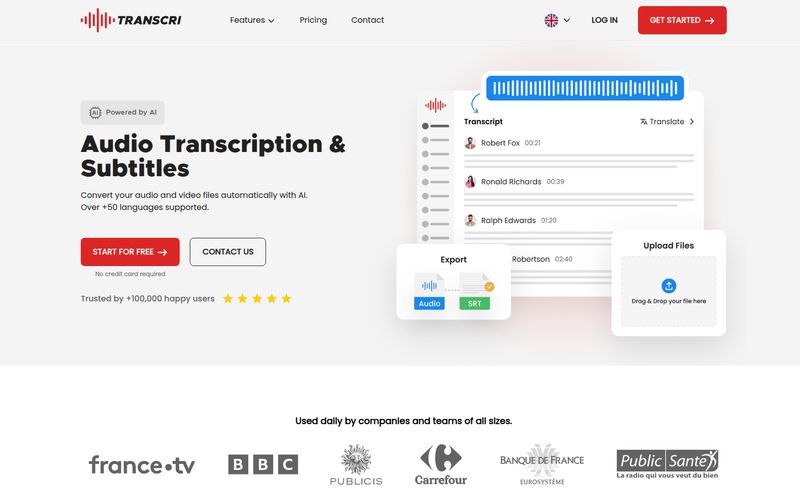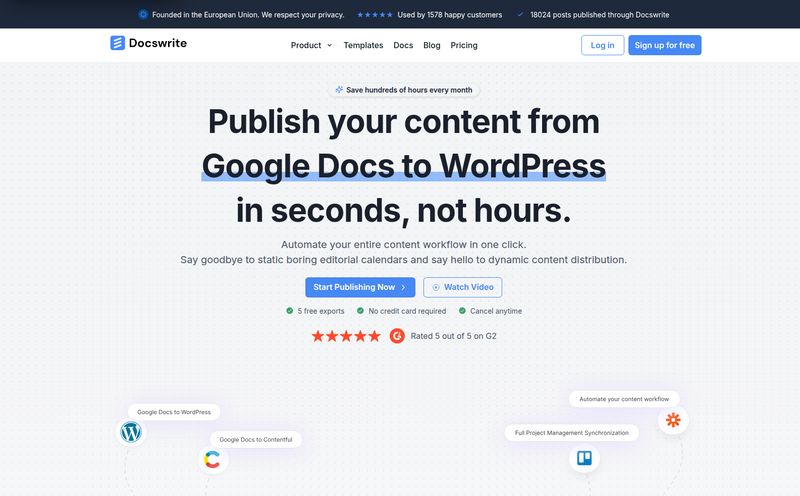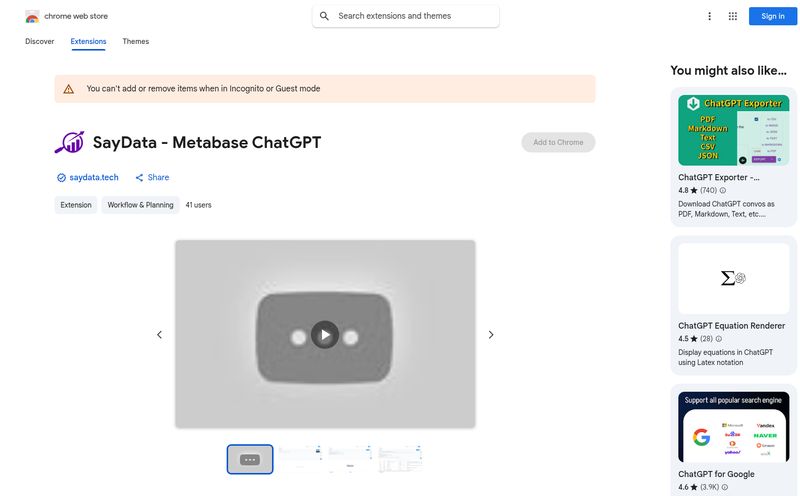If you’re a developer or a product lead in 2024, your life probably involves a bit of AI chaos. One day you’re all-in on GPT-4, the next, a new Claude model drops that’s perfect for your use case. You’re juggling API keys, trying to monitor costs that seem to have a mind of their own, and praying your app doesn’t accidentally leak sensitive data. It feels less like engineering and more like wrangling a herd of very intelligent, very expensive cats.
I’ve been in those trenches. Staring at an unexpectedly massive API bill, trying to debug a complex chain of prompts, and wondering if there was a better way. So when I stumbled upon a platform called Prompteus, my professional skepticism was high, but so was my curiosity. It claims to be a central command center for all this chaos. A way to build, deploy, and scale AI workflows without losing your mind. But does it live up to the hype?
So, What Exactly Is Prompteus Anyway?
Think of Prompteus as a mission control for your application's AI brain. Instead of writing endless boilerplate code to call different LLM APIs, handle fallbacks, and log everything, Prompteus gives you a visual, no-code canvas to design these flows. You can drag, drop, and connect nodes to build out your logic. It's like putting your AI operations on a clear, easy-to-read flowchart.
But don't let the 'no-code' label fool you. This isn’t just for non-technical folks. For developers, it's about abstracting away the tedious parts. It lets you focus on the what (the logic of your AI feature) instead of the how (the plumbing of API calls, retries, and error handling). It sits between your app and the various AI models you use, acting as an intelligent router and guardian. It's designed to bring command, coordination, and control to what can often feel like the wild west of AI integration.
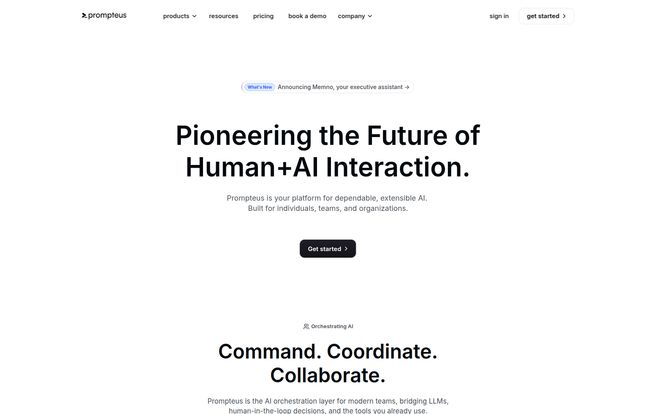
Visit Prompteus
Why LLM Orchestration Is Suddenly a Big Deal
A few years ago, you'd just pick one model and build your entire app around it. Simple enough. But today? That's a recipe for getting left behind. The pace of innovation is just staggering. Google's Gemini might be best for one task, Anthropic's Claude for another, and an open-source model from Mistral for something else entirely. Being locked into one vendor is like betting your entire company on a single horse in a very, very long race.
This is where orchestration comes in. It’s the art and science of using the right tool for the right job. You wouldn't use a sledgehammer to hang a picture frame, so why use an expensive, high-powered model like GPT-4 for a simple text classification task that a cheaper, faster model could handle? Orchestration platforms like Prompteus are built on this very idea. They give you the flexibility to switch, route, and combine models to build more powerful, efficient, and cost-effective AI features. Its a real game-changer.
A Look at the Core Features of Prompteus
Okay, let's get into the nitty-gritty. What can this thing actually do? I’ve spent some time digging through their offerings, and a few features really stand out.
Multi-LLM Support: Your Vendor Lock-In Escape Hatch
This is the headline feature, and for good reason. Prompteus lets you connect to various LLM providers seamlessly. You can build a workflow that tries OpenAI first, but if the API is down or too slow, it automatically fails over to Claude or Gemini. Or you can build a flow that intelligently routes a user's query to the most appropriate model based on the content of the prompt. This gives you incredible flexibility and future-proofs your application. A new, amazing model is released? You can integrate it in minutes, not weeks.
Adaptive Caching and Intelligent Routing: The Money Savers
I've always felt that the biggest barrier to AI adoption isn't technical complexity; it's unpredictable cost. Prompteus tackles this head-on. Its adaptive caching is brilliant. If multiple users ask the same question, it only calls the LLM once and serves the cached response to everyone else. It even supports semantic caching, which can identify questions that are phrased differently but have the same meaning. This alone can slash your API costs significantly.
Combine that with intelligent routing—using cheaper models for simpler tasks—and you have a powerful cost optimization engine built right into your workflow. For any startup or even established company watching their burn rate, this is huge.
Built-in Guardrails and Observability: Your AI Safety Net
When you're working in sensitive industries like fintech or healthcare—which Prompteus clearly targets—you can't just let an AI run wild. You need guardrails. Prompteus has these built in. You can set up rules to prevent harmful content, automatically redact personally identifiable information (PII), and ensure your AI's responses stay compliant and on-brand. The observability piece is just as important. With request-level logging, you get a full, transparent view of every prompt, response, and cost associated with your AI operations. No more black boxes. It’s like having a flight data recorder for every AI interaction.
The All-Important Question: Prompteus Pricing
Alright, so how much does all this cost? This is often where a great tool becomes inaccessible. Prompteus, however, seems to have a pretty reasonable approach. Here's a quick breakdown of their plans:
| Plan | Price | Best For |
|---|---|---|
| Starter | $0 / month | Developers and small teams just starting to explore LLM orchestration. It's a generous free tier with up to 50,000 requests per month. Seriously, no credit card required. |
| Advanced | $49 / month | Production-ready apps that need more robust features like advanced guardrails and 90-day log retention. The price point is incredibly competitive. |
| Enterprise | Custom | Large organizations needing unlimited requests, dedicated support, and SLA guarantees. You'll have to talk to their sales team for this one. |
Honestly, that Starter plan is a no-brainer. It gives you more than enough room to build a real project and see if the platform is right for you without spending a dime. That's a level of confidence I like to see from a SaaS company.
A Balanced View: The Potential Hiccups
No tool is perfect, and it would be dishonest to pretend otherwise. From my analysis, there are a couple of things to keep in mind. First, while it's a 'no-code' editor, setting up the initial integrations and understanding the concepts of orchestration might require some technical know-how. It's built for developers and product teams, so you'll want to be comfortable with API concepts.
Second, by using Prompteus, you are introducing another platform into your stack. You're relying on them to be fast, reliable, and secure. This is a trade-off you make with any third-party service, from your cloud provider to your payment processor. The key is whether the value they provide—in this case, simplicity, cost savings, and control—outweighs the dependency. In my opinion, for most teams building with AI, it absolutely does.
Final Thoughts: Is Prompteus Worth It?
After digging in, I'm genuinely impressed. Prompteus isn’t just another tool in the ever-growing AI landscape. It feels like a thoughtful solution to a set of very real, very frustrating problems that developers are facing right now. It’s a move from chaotic, ad-hoc AI implementation to structured, controlled, and scalable AI operations.
It manages to strike a rare balance: powerful enough for complex, production-grade applications, yet simple enough to dramatically speed up development. If you're tired of herding AI models and want to bring some sanity back to your workflow, I'd say giving the Prompteus free plan a spin is one of the smartest moves you could make this year.
Frequently Asked Questions
- Is my data safe with Prompteus?
- They emphasize security, especially for the industries they target like finance and healthcare. The platform includes features like built-in PII redaction, and for enterprise clients, they likely offer more advanced security assurances. As always, review their security and privacy policies.
- What kind of LLMs can I use with the platform?
- Prompteus is designed for multi-LLM support. This means you can connect to major providers like OpenAI, Anthropic (Claude), Google (Gemini), and likely various open-source models as well. The goal is flexibility, so you're not tied to one ecosystem.
- Is the Starter plan really free forever?
- Based on their pricing page, yes. The $0/month Starter plan is designed for exploration and small projects. It includes up to 50K requests per month, which is quite generous. You only need to upgrade if your needs exceed those limits or you require advanced features.
- Can I switch models in the middle of a project?
- Absolutely. That's one of the core benefits. The visual workflow editor allows you to easily swap out one LLM node for another, so you can experiment or upgrade to a new model without having to refactor your application's code.
- What’s the main benefit over just calling an API directly?
- Control and efficiency. Calling an API directly is simple for one-off tasks, but for a real application, you need logging, error handling, fallbacks, cost tracking, and security guardrails. Prompteus provides all that infrastructure out of the box, saving you immense development time and operational headaches.
